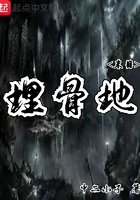THE belief in phantoms, ghosts, or spirits, has frequently been discussed in connection with speculations on the origin of religion. According to Mr. Spencer ('Principles of Sociology') 'the first traceable conception of a supernatural being is the conception of a ghost.' Even Fetichism is 'an extension of the ghost theory.' The soul of the Fetich 'in common with supernatural agents at large, is originally the double of a dead man.' How do we get this notion - 'the double of a dead man?' Through dreams. In the Old Testament we are told: 'God came to' Abimelech, Laban, Solomon, and others 'in a dream'; also that 'the angel of the Lord' appeared to Joseph 'in a dream.' That is to say, these men dreamed that God came to them. So the savage, who dreams of his dead acquaintance, believes he has been visited by the dead man's spirit. This belief in ghosts is confirmed, Mr. Spencer argues, by other phenomena. The savage who faints from the effect of a wound sustained in fight looks just like the dead man beside him. The spirit of the wounded man returns after a long or short period of absence: why should the spirit of the other not do likewise? If reanimation follows comatose states, why should it not follow death?
Insensibility is but an affair of time. All the modes of preserving the dead, in the remotest ages, evince the belief in casual separation of body and soul, and of their possible reunion.
Take another theory. Comte tells us there is a primary tendency in man 'to transfer the sense of his own nature, in the radical explanation of all phenomena whatever.' Writing in the same key, Schopenhauer calls man 'a metaphysical animal.' He is speaking of the need man feels of a theory, in regard to the riddle of existence, which forces itself upon his notice; 'a need arising from the consciousness that behind the physical in the world, there is a metaphysical something permanent as the foundation of constant change.'
Though not here alluding to the ghost theory, this bears indirectly on the conception, as I shall proceed to show.
We need not entangle ourselves in the vexed question of innate ideas, nor inquire whether the principle of casuality is, as Kant supposed, like space and time, a form of intuition given A PRIORI. That every change has a cause must necessarily (without being thus formulated) be one of the initial beliefs of conscious beings far lower in the scale than man, whether derived solely from experience or otherwise. The reed that shakes is obviously shaken by the wind. But the riddle of the wind also forces itself into notice; and man explains this by transferring to the wind 'the sense of his own nature.' Thunderstorms, volcanic disturbances, ocean waves, running streams, the motions of the heavenly bodies, had to be accounted for as involving change. And the natural - the primitive - explanation was by reference to life, analogous, if not similar, to our own.
Here then, it seems to me, we have the true origin of the belief in ghosts.
Take an illustration which supports this view. While sitting in my garden the other day a puff of wind blew a lady's parasol across the lawn. It rolled away close to a dog lying quietly in the sun. The dog looked at it for a moment, but seeing nothing to account for its movements, barked nervously, put its tail between its legs, and ran away, turning occasionally to watch and again bark, with every sign of fear.
This was animism. The dog must have accounted for the eccentric behaviour of the parasol by endowing it with an uncanny spirit. The horse that shies at inanimate objects by the roadside, and will sometimes dash itself against a tree or a wall, is actuated by a similar superstition. Is there any essential difference between this belief of the dog or horse and the belief of primitive man? I maintain that an intuitive animistic tendency (which Mr. Spencer repudiates), and not dreams, lies at the root of all spiritualism. Would Mr. Spencer have had us believe that the dog's fear of the rolling parasol was a logical deduction from its canine dreams? This would scarcely elucidate the problem. The dog and the horse share apparently Schopenhauer's metaphysical propensity with man.
The familiar aphorism of Statius: PRIMUS IN ORBE DEOS FECIT
TIMOR, points to the relation of animism first to the belief in ghosts, thence to Polytheism, and ultimately to Monotheism. I must apologise to those of the transcendental school who, like Max Muller for instance (Introduction to the 'Science of Religion'), hold that we have 'a primitive intuition of God'; which, after all, the professor derives, like many others, from the 'yearning for something that neither sense nor reason can supply'; and from the assumption that 'there was in the heart of man from the very first a feeling of incompleteness, of weakness, of dependency, &c.'
All this, I take it, is due to the aspirations of a much later creature than the 'Pithecanthropus erectus,' to whom we here refer.
Probably spirits and ghosts were originally of an evil kind.
Sir John Lubbock ('The Origin of Civilisation') says: 'The baying of the dog to the moon is as much an act of worship as some ceremonies which have been so described by travellers.'
I think he would admit that fear is the origin of the worship. In his essay on 'Superstition,' Hume writes:
'Weakness, fear, melancholy, together with ignorance, are the true sources of superstition.' Also 'in such a state of mind, infinite unknown evils are dreaded from unknown agents.'
Man's impotence to resist the forces of nature, and their terrible ability to injure him, would inspire a sense of terror; which in turn would give rise to the twofold notion of omnipotence and malignity. The savage of the present day lives in perpetual fear of evil spirits; and the superstitious dread, which I and most others have suffered, is inherited from our savage ancestry. How much further back we must seek it may be left to the sage philosophers of the future.















